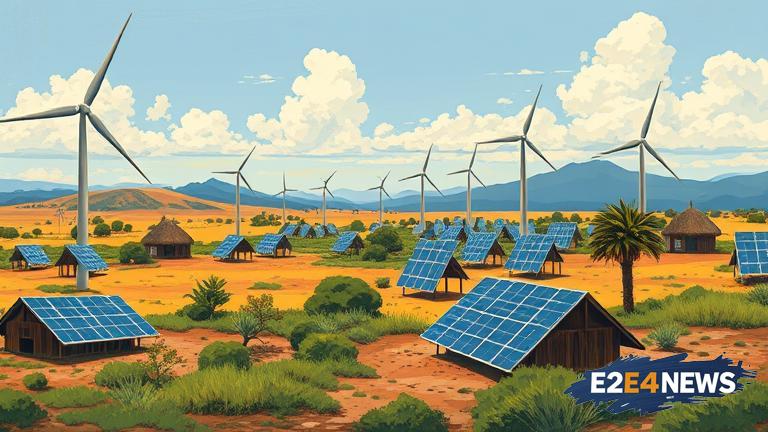The African continent is witnessing a significant shift towards renewable energy, driven by the need to address the pressing issues of energy access, climate change, and sustainable development. With many countries still struggling to provide reliable and affordable electricity to their citizens, renewable energy has emerged as a viable solution. Solar and wind power are leading the charge, with countries like South Africa, Egypt, and Morocco investing heavily in these sectors. The African Union’s ambitious goal of achieving 100% access to electricity by 2030 has further accelerated the adoption of renewable energy. Governments and private sector players are working together to develop and implement renewable energy projects, creating new opportunities for economic growth and job creation. The use of renewable energy is also expected to reduce greenhouse gas emissions, contributing to a cleaner and healthier environment. Moreover, the cost of renewable energy is decreasing, making it more competitive with fossil fuels. This trend is likely to continue, driving further investment and innovation in the sector. As the demand for energy continues to rise, African countries are exploring new ways to harness renewable energy, including geothermal, hydro, and biomass. The development of renewable energy infrastructure is also expected to improve energy security, reducing reliance on imported fuels and enhancing economic stability. Furthermore, the growth of renewable energy is creating new opportunities for local communities, including the development of small-scale renewable energy projects and the creation of jobs in the sector. The African Renewable Energy Initiative, launched in 2015, aims to support the development of at least 300 GW of renewable energy capacity by 2030. The initiative has received significant support from international organizations and donors, highlighting the global commitment to Africa’s renewable energy transition. In addition, many African countries are implementing policies and regulations to support the development of renewable energy, including tax incentives, feed-in tariffs, and net metering laws. The private sector is also playing a crucial role, with companies like Vestas, Siemens Gamesa, and Goldwind investing in renewable energy projects across the continent. As the renewable energy sector continues to grow, it is expected to attract significant investment, creating new opportunities for economic growth and development. The African Development Bank has estimated that the continent’s renewable energy sector could attract up to $30 billion in investment by 2030. Moreover, the growth of renewable energy is expected to have a positive impact on the environment, reducing air pollution and greenhouse gas emissions. The use of renewable energy is also expected to improve public health, reducing the negative impacts of air pollution on human health. In conclusion, Africa’s renewable energy revolution is gaining momentum, driven by the need to address the pressing issues of energy access, climate change, and sustainable development. With the support of governments, private sector players, and international organizations, the continent is poised to become a leader in the global renewable energy market.
